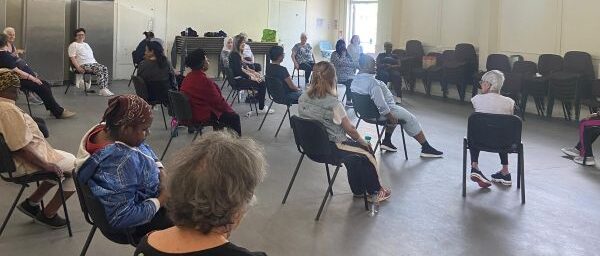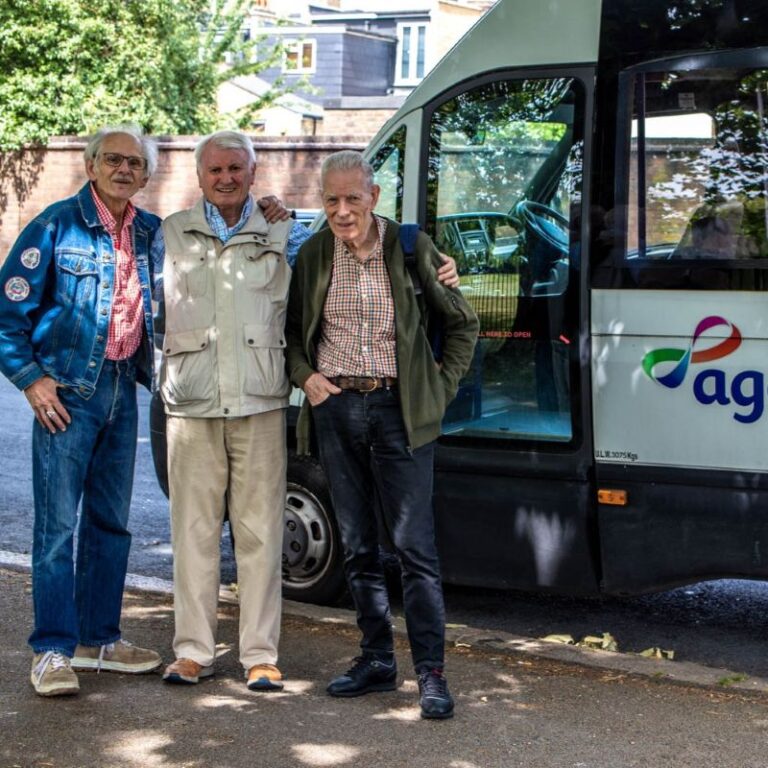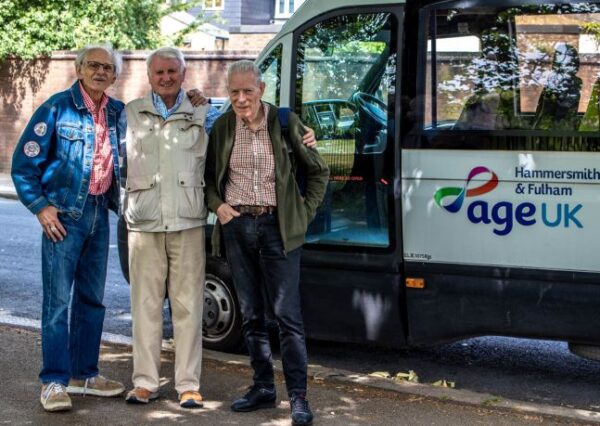‘It’s not rocket science…it’s about properly listening’
Throwing out the rulebook to support people with dementia and their families, For Brian has helped its members take a more active role in shaping support.
“For Brian grew from the idea that people with dementia and their families needed the opportunity to creatively shape support, rather than being ruled by a manual,” says Clare Morris, founder of For Brian. Launched in 2018, it’s a community organisation with a fresh approach to supporting people with dementia and their families.
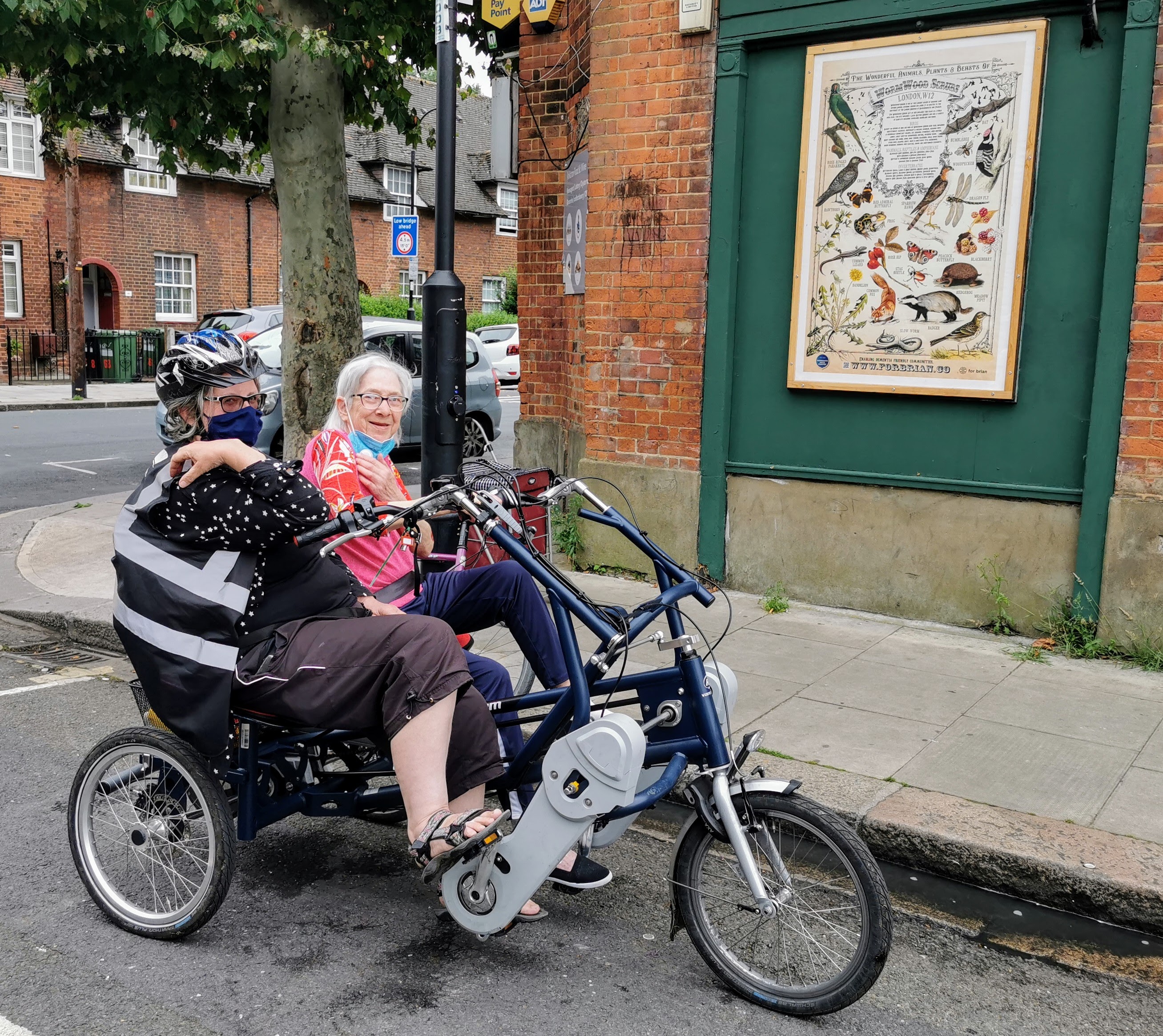
With 30 years’ clinical experience in working with people with cognitive impairment, Clare was passionate about empowering people with dementia. She joined the Agents of Change leadership programme, which is part funded by Hammersmith United Charities. The programme, which enables female leaders to drive social change locally through skills building, networking and mentorships, helped Clare to get her idea off the ground in Hammersmith and Fulham. “The Agents of Change Leadership Programme has been such a brilliant source of collaboration,” she says. “It’s great to be part of such a supportive community of like-minded people with complementary aims.”
For Brian has now been running for three years. It’s working within the dementia community to find out what’s truly supportive, and then facilitating people to make it happen. “Co-production is a very popular term at the moment,” says Clare. “But we’re experimenting with it so people shape the services themselves. It also helps practitioners be more creative, without the constraints of a big organisation,” she says. Everyone has a voice; some of the directors at For Brian will have dementia themselves.
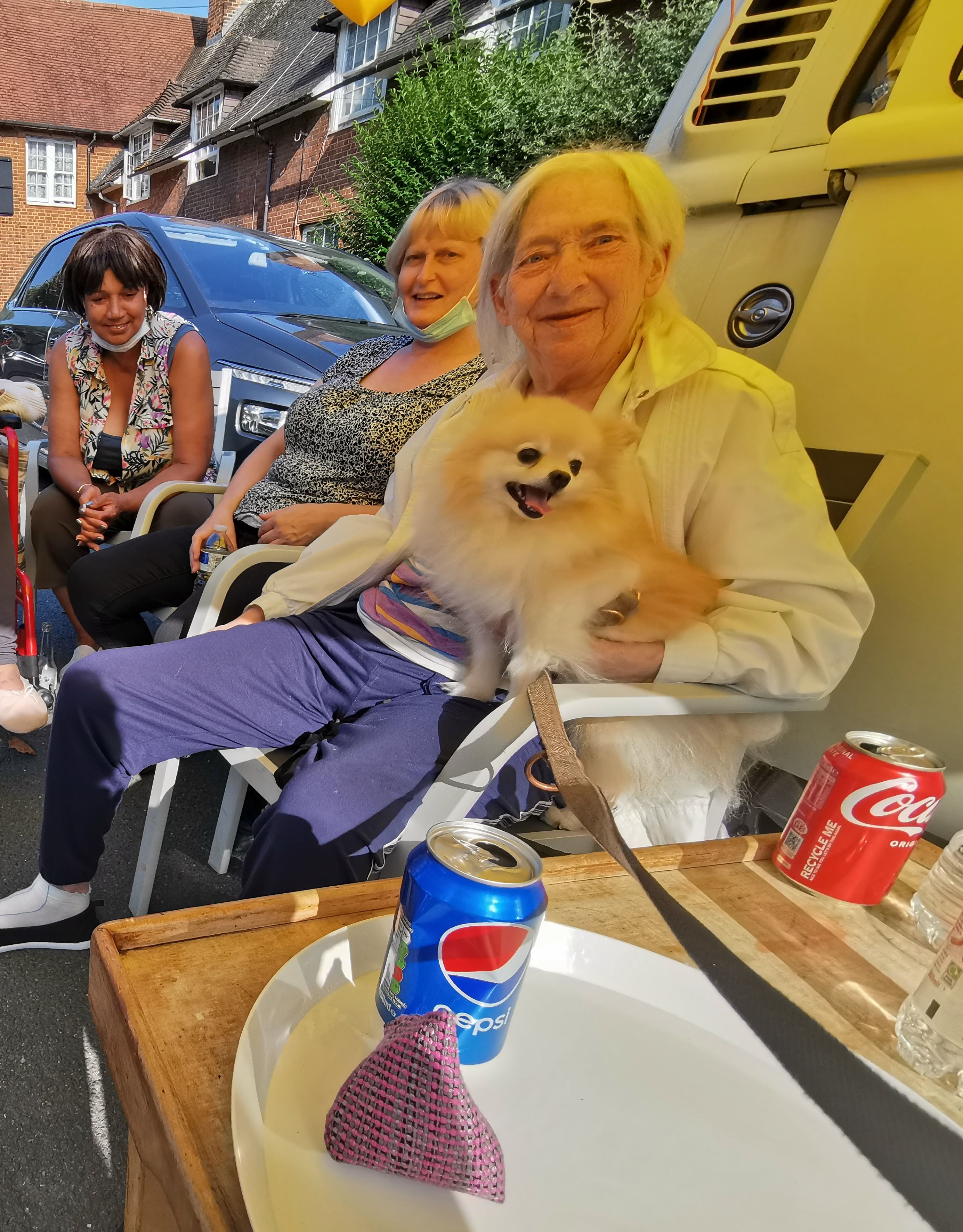
Underpinning this is ‘personal construct psychology’, which helps Clare stand in the shoes of people with cognitive impairment. “It’s not rocket science,” says Clare. “But it helps to think through what it’s actually like to struggle to communicate. How it feels for people to speak about you rather than to you; to feel disinhibited and then be socially excluded; to not know where you are. It helps us to remember to ask those important questions: Can I help? How can I help? And to listen carefully. People with dementia just want the same things as the rest of us.”
When designing activities for her members, Clare tries to encourage “anything that helps people with brain health,” unlocking the things that people can do, rather than what they can’t do. That’s brought into being things like dementia-inclusive cycling on adapted bikes, which gives people an immense feeling of freedom, she says. Other activities which have got people out enjoying themselves include dementia-friendly yoga, art, horse therapy and street parties.
In the true For Brian spirit, the members taken these initiatives and given them a life of their own. For example, online art sessions started with the concept of doodling together with peers. Projects gradually got more elaborate and as people got to know each other, they started to meet outside and talk about bigger issues and giving each other advice. “And projects important to members have begun to flourish – one person has started making bespoke ‘discovery bags’ with objects to provide sensory stimulation, comfort and intrigue,” says Clare.
Inclusion is a thread that runs through everything at For Brian. “I’ve met so many people with dementia – particularly from minority communities and younger people – struggling to find appropriate support,” says Clare. “In fact, For Brian started with Mike, who’s one of our directors, and Tom, a gay couple keen to raise awareness about LBGTQ+ people living with dementia and the prejudice that’s still prevalent.”
Connecting with empowering funders has been key to success. “Hammersmith United Charities funded us right at the beginning to help us get off the ground, and with them, I found people who understand what I’m talking about,” says Clare. “They’ve allowed us to use their funding really flexibly to meet the needs of people in a timely, tailor-made way. This helps For Brian to deliver with continuity and survive, and makes the funds go further.
“Hammersmith United Charities let us hold onto our funding over the pandemic as For Brian was awarded several Covid-related grants – now those projects are completed we have had that money in hand to provide a seamless service. This support between project grants is key to delivering the continuity people with dementia need, and has nurtured the relationship between For Brian and Hammersmith United Charities.”
Clare believes that if you get it right for people with dementia you tend to get it right for everyone in the community. “I feel proud that For Brian has helped grow an inclusive dementia community, where people have an active voice in their own lives.
“One local lady I know usually comes to the door in her nightie. With regular doorstep interventions throughout lockdown we managed to get her to come to our street party. She sat listening to the music, socialising and tapping her feet for three hours. That sort of thing makes my heart sing.”
Find out more:
- Learn more about For Brian’s work here
- Find out about the Agents of Change programme
- Read more about other ways we support our community
- More information about our grants programme
- Read about organisations we’ve funded

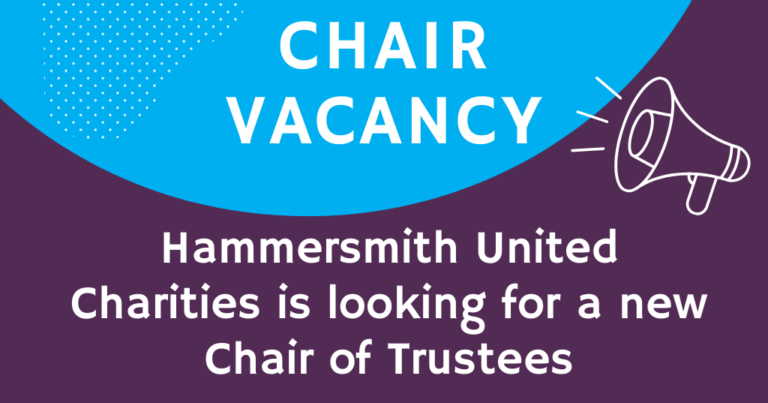
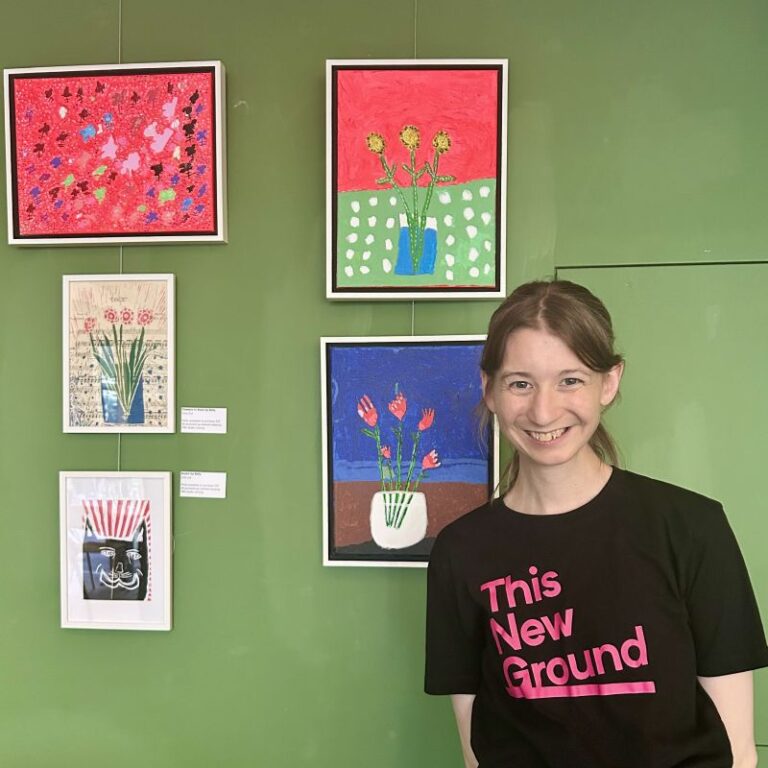
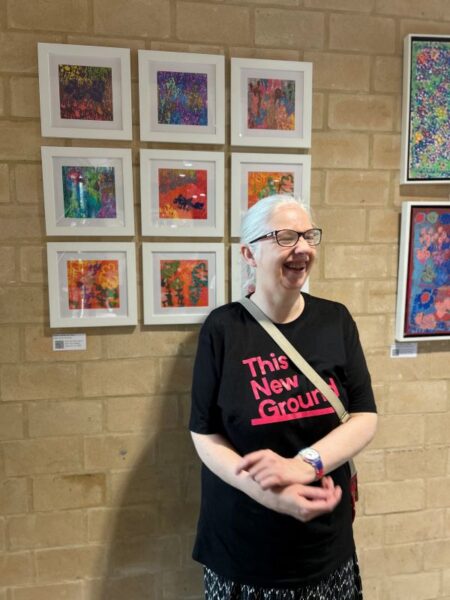

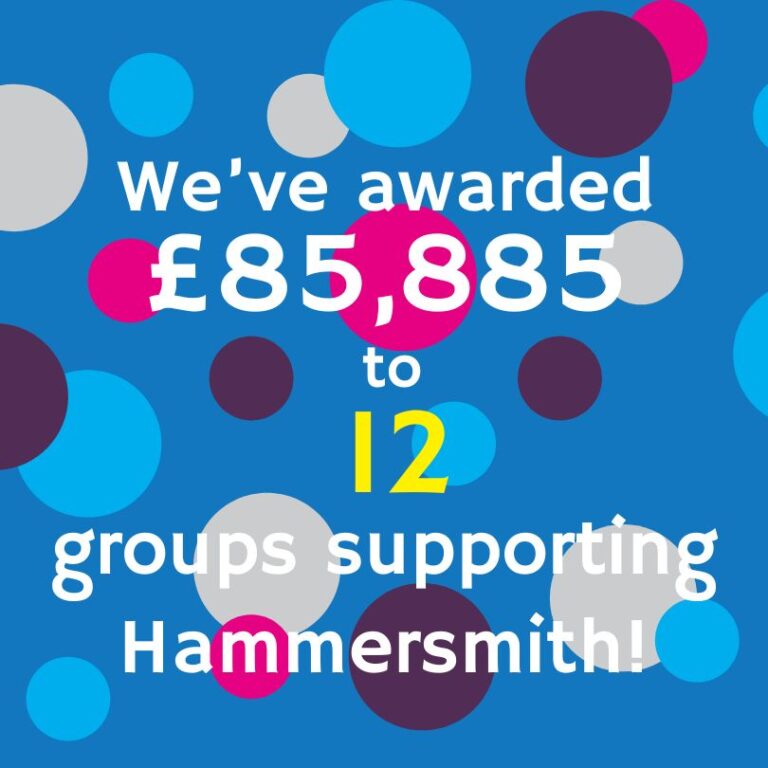
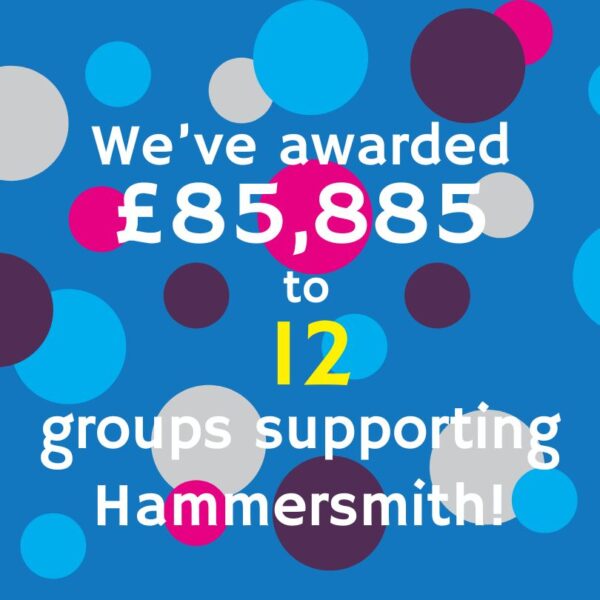 John Betts Primary School: £12,200
John Betts Primary School: £12,200
 To address these barriers, Hanna partnered with two other women to set up
To address these barriers, Hanna partnered with two other women to set up 